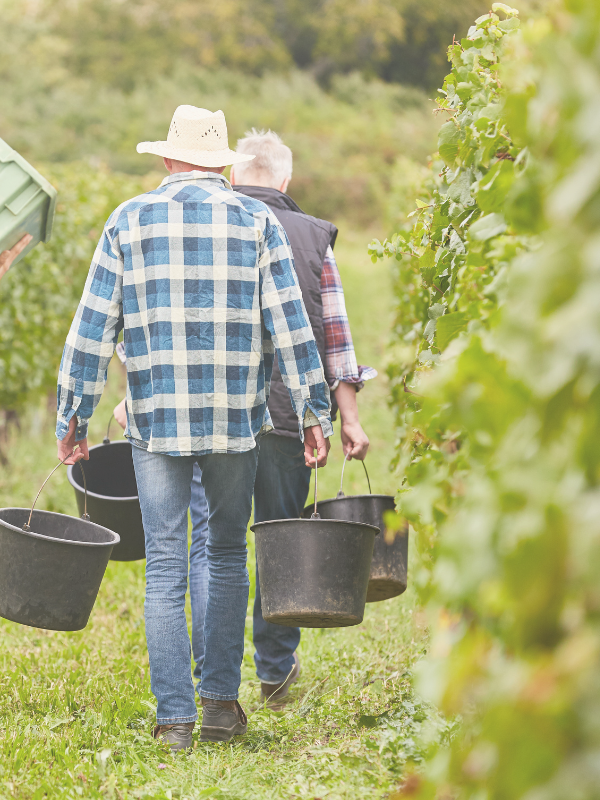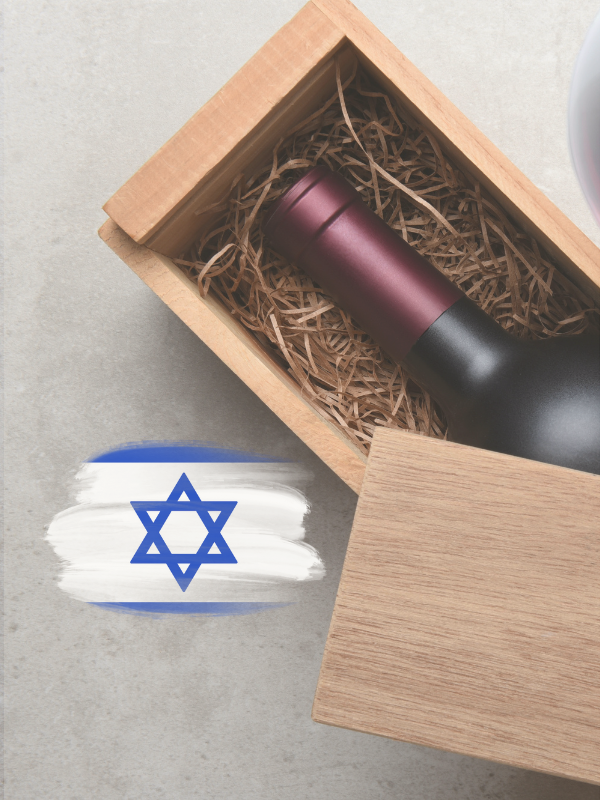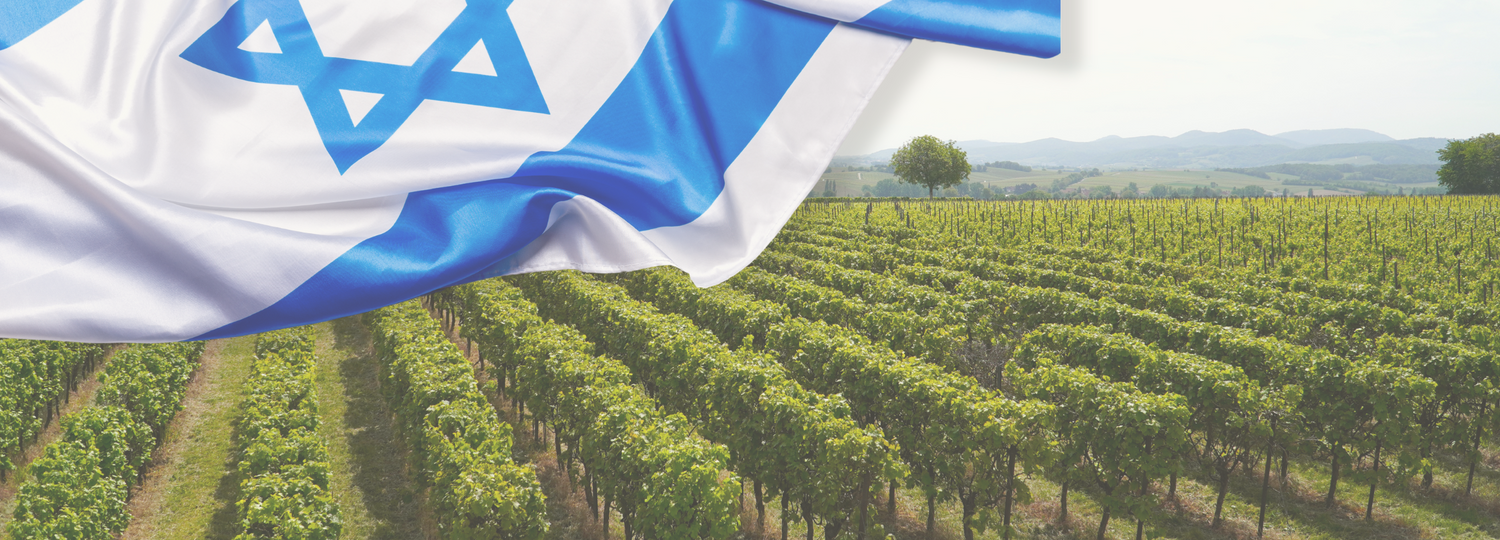Share this page:
Introduction
In the face of challenges, Israel's storied wine industry stands resilient. Your support now is vital. Discover our exceptional Israeli wines and join a movement that not only cherishes quality but also bolsters an industry braving adversity. Each bottle you choose makes a difference.
The Resilience of Israeli Winemaking
The Israeli wine industry is sadly no stranger to the disruptions of conflict, having experienced a four-century-long hiatus in its biblical-era history as a direct result of war. The industry's renaissance in the 1980s made Israel a significant contributor to the emerging niche kosher wine industry and catalyzed expanding interest in the wider variety of kosher wines globally. However, Israeli winemakers face uncertainty once again following the unthinkable events that occurred on October 7th.
The attack took place soon after the Israeli grape harvest, when owners, workers, and their families were under constant threat of attack. Suddenly, winemakers had to keep up with the winemaking process while many young men and women, critical to production, were taken from the safety of their jobs and were called in for army reserve duty to protect their country. .
Despite a smaller staff presence, Israeli wineries must continue to keep up with wine production to remain operational. As a result, now more than ever, supporting Israeli wineries is crucial to help the industry once again rise above conflict.

Unmasking Israeli Wine Challenges
Winemaking has its own schedule, unlike other industries where you can pause production or run with limited staff. Grapes grow and ripen when they do; the winemaking process is very hands-on. Without staff, many wineries face uncertainty," explains Joshua Greenstein, the Vice President of the Israeli Wine Producers Association (IWPA).
With a call to defend their country, many men and women who play a crucial role in ushering the winemaking process along have created a gap, not only in their households but in the wine industry as well. As a result, wineries are teetering on the brink of survival, placing great uncertainty on business owners and the entire communities their wineries support.
It is not only wineries’ workers, but also the winemakers’ sons and daughters who have been called to serve their country. It is essential to acknowledge that many wineries also employ Palestinians, placing them in a position where they have close ties to both sides of the conflict. Even worse, many of those who own and work in Israeli wineries have lost loved ones or live day to day fearing for the lives of those taken hostage.
Eran Pick of Tzora Winery in the Judean Hills was proud of the diverse team he employed, including Arabs, Muslims, Orthodox Jews, and Gazans,who worked side by side. He fears the long-term effects of the conflict will forever change that sense of solidarity, making it impossible to regain the trust once shared as different cultures work together.

Personal Power: How You Can Help
Continuing to purchase Israeli wines and exploring new Israeli wine varieties is the best way to help. "Sip for Solidarity" supports Israeli wineries and raises money for Israeli relief efforts. By choosing Israeli kosher wines for your celebrations and everyday enjoyment, you make it possible for the Israeli Wine Producers Association (IWPA) to contribute 10% of every case shipped from November 1st to December 31st to Israeli relief efforts. You also continue to support the families involved in the Israeli wine industry, keeping vineyards operational and contributing to an industry that provides jobs to their communities. This in turn helps families continue to pay their bills and feed children despite the income loss many have suffered.
Take a Stand Now
Explore our selection of exceptional Israeli wines and make a difference with every purchase.
Impact of Your Support
Helping Israeli vineyards makes the struggles for Israelis and Israeli wineries surmountable. Your purchases contribute much-needed funding to support those impacted by the conflict while making it possible for wineries to craft their wines just as they always have. Make no mistake. Winemakers understand the insignificance of their plight compared to the suffering the conflict is causing despite struggling to keep their businesses alive.
Instead, they face the same fears as everyone, including the risks of attack and the anxiety of potentially more hostages being taken. Prayers for those who have lost loved ones and face daily threats helps stress the importance of faith in the face of hate and violence.
Many wineries are very close to the front, exposing them to the dangers of incoming missiles. Domaine du Castel had a rocket land in its vineyards. Although wineries along Upper Galilee and Golan Heights are further north, they are still in an area where evacuations have taken place as concerns over Hezbollah and the border with Lebanon present possible danger.
"The most incredible way to keep Israel's economy thriving through this is to support the Israeli wineries and buy Israeli goods whenever possible right now," explains Greenstein.
Beyond Wines: Other Avenues for Support
It is not only wineries that face difficulties. Many wineries are banding together with fellow farmers who face the same threats. Golan Flam of Flam Wineries traveled to a nearby farm near the border to help harvest cherry tomatoes.
There are also winery owners volunteering to assist civilian organizations at the front lines, like Ido Lewinsohn, head winemaker at the country's largest winery, Barkan. You can help support these efforts by donating money to various emergency funds through your local synagogues and community donations set up by individuals.
As interest in wine plummets, purchasing Israeli kosher wine can make a big difference in a wine industry struggling in a climate where the idea of celebration is far from people's minds.
Israelis do not have the luxury to live joyful, safe lives. Instead they stick close to home, putting local restaurants at risk. "… wine is usually something enjoyed when you go out to eat or to a party, and people in Israel aren't feeling particularly celebratory these days. It's catastrophic not just for the industry now, but for vintages harvesting now that wouldn't be ready for sale years to come," says Greenstein. What is happening now in Israel will not just affect production this year, but will be something the winemakers will continue to feel the effects of in the future.
Wine and the Israeli economy are very much tied together, which recently experienced a 60% drop in restaurant wine sales. Posing a real threat to the market.. Through your ongoing enjoyment of Israeli kosher wines and purchasing other imported Israeli goods, you can help both local wineries and Israel's economy.
It is hard to imagine the fear, and loss of those trying to carry on under such unspeakable circumstances. However, Israeli winemakers and their neighboring farmers find solace in keeping up with the demands of their industry with their sights set on peace.
Victor Schoenfeld of Golan Heights Winery has faith that people will again raise a glass from the vintages that came out of the conflict to symbolize their strength. "This will be remembered as the harvest of the war," he says. "… it continues to be our responsibility to make great Israeli wine and bring a bit of culture, joy, and light into the world. Culture is our shield against darkness." Let’s make light triumph over darkness together.
You can become part of his vision by supporting the victims of the conflict and the winemakers determined to deliver their products even in the face of war.
Join Us in Solidarity
Your choice matters. Support resilience in winemaking by choosing Israeli wines today.
You can learn more about contributing here:
https://www.winespectator.com/articles/war-and-israels-wine-harvest
Share this page:

